At The New York Horror Film Festival, I had killer conversations with several directors and got to speak face to face with a man who played Jason Voorhees! Straight from their twisted minds, I got secret advice on how actors can rise to scream king/queen level and become masters of horror…
They want you to die…
The horrifying truth from Frank Sabatella, director of Blood Night
 Immediately you see vulnerability in a hero and an underlying menace in the killer. Something unique. Something stimulating. Horror films are very physical so there has to be something physically stimulating about the characters. It’s a tough act to pull off, to adapt to the circumstances and react as themselves would. To help, as a director, I made it as real and surprising as possible. We shot in an abandoned, haunted sanitarium. Everyone was on edge and frightened. We shot at night and actors got hit with blood. So much blood that they weren’t prepared and they really screamed. The best kinds of chilling horror scream, come from the throat, very shrill. It breaks up and jags people. Then the actor’s eyes sell the scene. You see sincerity, despair. Actors in horror films are meat for the killer and the audience wants them to live or they want them to die.
Immediately you see vulnerability in a hero and an underlying menace in the killer. Something unique. Something stimulating. Horror films are very physical so there has to be something physically stimulating about the characters. It’s a tough act to pull off, to adapt to the circumstances and react as themselves would. To help, as a director, I made it as real and surprising as possible. We shot in an abandoned, haunted sanitarium. Everyone was on edge and frightened. We shot at night and actors got hit with blood. So much blood that they weren’t prepared and they really screamed. The best kinds of chilling horror scream, come from the throat, very shrill. It breaks up and jags people. Then the actor’s eyes sell the scene. You see sincerity, despair. Actors in horror films are meat for the killer and the audience wants them to live or they want them to die.
 Boobs sell…
Boobs sell…
The candid and comical POV of Stacy Davidson, director of Sweat Shop
Don’t be timid. In many kinds of films you can give a little of yourself, but in horror you have to leave it all on stage, every drop, in order to be believable. There is a school of thought in horror that boobs sell. It’s true, hard bodies sell whether a guys or girls, or interesting people who may not be considered pretty in other films. And then horror actors need to find something that terrifies them or makes them sad and feel real terror, real sadness and pull it out at a moments notice. Because blood and guts can be hysterical in person. Heads are rolling around. You’ve got to be really good at turning the intensity back on, bringing yourself into the moment. And when it comes time to scream, many women can not produce a feminine scream. But the best screams are feminine, high-pitched, ear piercing, and shrill.
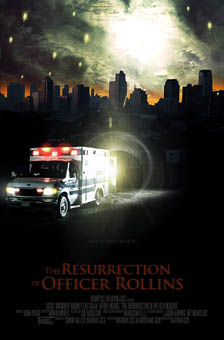 You don’t know it, but a zombies coming after you…
You don’t know it, but a zombies coming after you…
Heed the words of Nathan Cox, director of Resurrection of Officer Rollins.
Quickly, you have to convey an emotion or idea. You have to be smart. Fearless. There’s definitely a fearlessness needed because what’s expected isn’t something that happens on a day to day basis so there has to be a trust, a commitment. Great actors are courageous. And their scream is visceral, guttural. It comes from that scary place that doesn’t happen every day. You only have a certain amount of time to grab people and in horror its all about the sounds and noises. In a good horror or zombie film, the actors have to play it as straight as possible. The audience is in on the joke but the actor can’t be. The actor doesn’t know a zombie’s coming after them; they don’t know what a zombie is. That’s what makes it scary to them and believable.
 Terror grows…
Terror grows…
Cutting right to the point with Ron Millkie who played Officer Dorf in Friday 13th
The inner truth, finding it and intensifying it makes a horror actor believable. Before you start the scene, if its terror, get yourself in an intense state, get yourself revved up. And when the most horrifying moment comes, don’t scream. Think like your body has been shot with Novocain, as if you’re in shock. And as the horror sets in… let the terror grow.
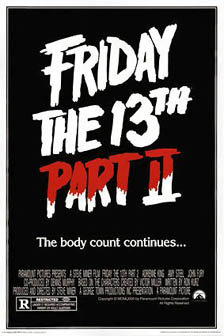 Come up with some sick things in your head…
Come up with some sick things in your head…
A legend speaks… Steve Daskawisz who played Jason Voorhees in Friday 13th II
You have to have a sinister mind when you approach horror. When killings are going on, in my mind, it’s happening. An actor isn’t supposed to know its horror; that someone’s hiding behind the door. You have to be afraid. And if you are supposed to be mean reach back to a situation when someone really pissed you off. Listen to the dialogue and then react. You are the character. In my mind, I created a lope. I didn’t run. I loped. When playing a character that’s a monster you have to come up with some sick things in your head to make it work.
For more information on The New York City Horror Festival, visit www.nychorrorfest.com

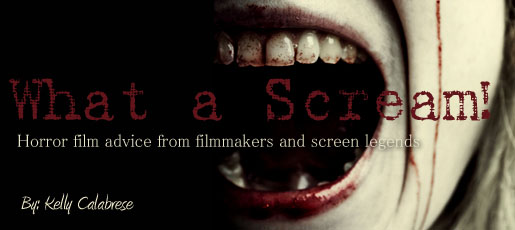
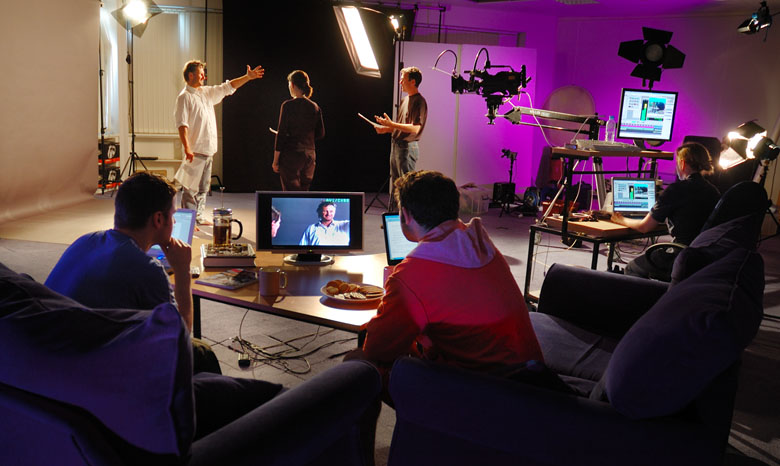
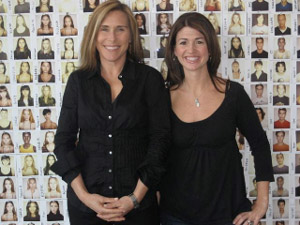 Speaking honestly, Brooke and Mary shared a lot of straightforward advice about commercial auditioning. And in line with their fun style, they scripted an on-the-spot… 30sec commercial bit that gives an inside look into the mind of casting director during audition experience! Stay tuned for that improv commercial piece, after the main show of questions (Q) and answers with Brooke (B) and Mary (M). Take one…
Speaking honestly, Brooke and Mary shared a lot of straightforward advice about commercial auditioning. And in line with their fun style, they scripted an on-the-spot… 30sec commercial bit that gives an inside look into the mind of casting director during audition experience! Stay tuned for that improv commercial piece, after the main show of questions (Q) and answers with Brooke (B) and Mary (M). Take one…

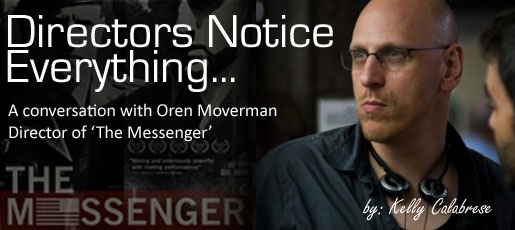
 In order to bring the character forward, Oren suggests, listening and being open to changing things in the moment. We are making movies and it’s a chance for actors to use their instrument, their face, their eyes. If an actor is deep in the character and meaning, who they are will show up. If they believe the role, their eyes are the characters.
In order to bring the character forward, Oren suggests, listening and being open to changing things in the moment. We are making movies and it’s a chance for actors to use their instrument, their face, their eyes. If an actor is deep in the character and meaning, who they are will show up. If they believe the role, their eyes are the characters.